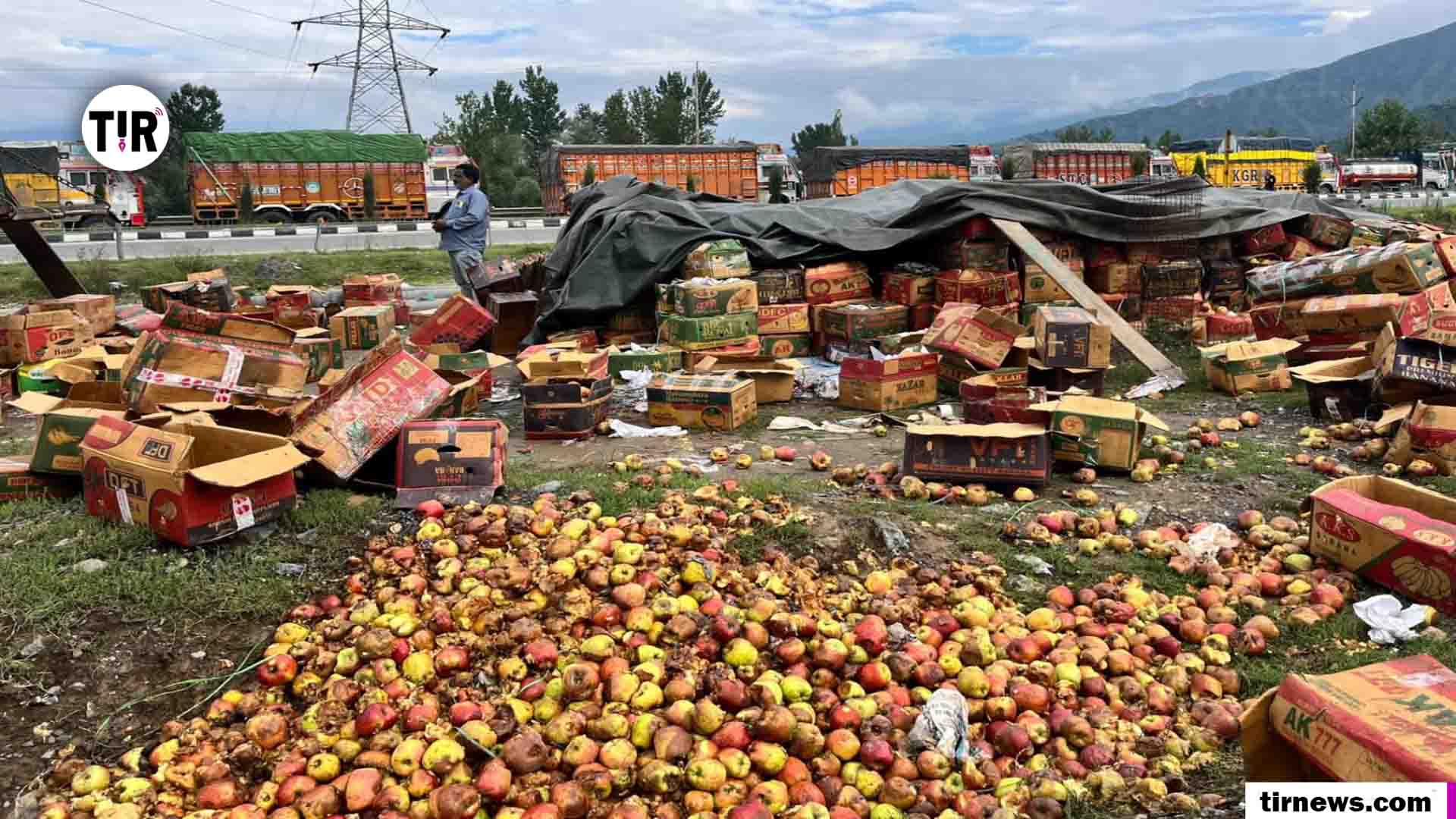As of September 10, 2025, Kashmir’s apple industry—valued at approximately ₹12,000 crore and surpassing tourism in economic importance—is facing a severe crisis following a 15-day closure of the Srinagar–Jammu highway
The highway blockade, triggered by recent floods and landslides, has crippled logistics. Apple growers and traders warn that delayed transport of perishable fruit, compounded by soaring freight costs, poses an existential threat to the region’s most lucrative sector.
This industry sustains 3.5 million people and contributes nearly 10% of Jammu & Kashmir’s GDP. During the 2023–24 period, total horticultural output was 26.43 lakh metric tonnes, including 18.57 lakh exported tonnes, with apples commanding a dominant share. Notably, Sopore Fruit Mandi—one of Asia’s largest fruit markets—accounts for nearly ₹3,000 crore in turnover; Shopian supplies over 60% of local employment related to apple orchards .
Broader Context & Implications
- Widespread Impact Across Kashmir: Reports confirm that over 1,000 fruit trucks, each bearing produce worth ₹5 to 10 lakh, remain stranded due to landslides between Jakhaini and Chenani ([turn0search2], [turn0search17]). Growers fear the losses could total ₹200 crore ([turn0search15]), with devastation in orchards across Pulwama and Kulgam—estimated at up to ₹200 crore in damage .
- Production Decline Meets Transport Disruption: Even with a bumper harvest, India’s ₹10,000 crore apple sector is reeling from glut-based price drops, undercutting revenue ([turn0search1]). Bumper yields are now being crushed by logistical snarls that allow spoilage before fruits reach markets.
- Growing Freight Costs & Market Oversupply: Skyrocketing freight costs—60% higher than usual—with delays causing multiple trucks to flood mandis simultaneously result in steep price declines and mounting losses.



